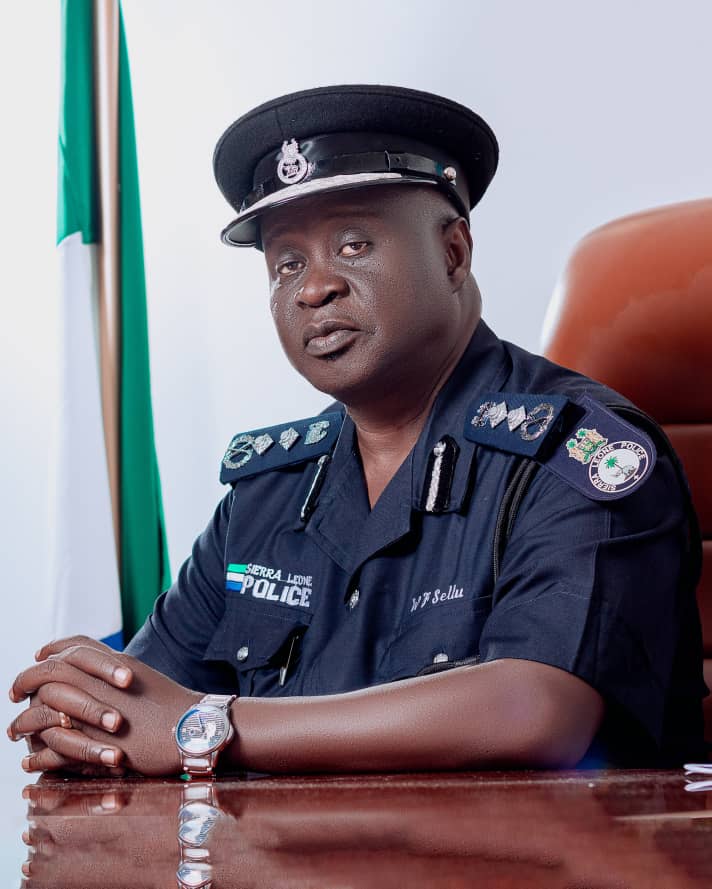By Joseph A. Kamanda
Security guard checkpoints the world over are mounted to conduct indiscriminate vehicular and other forms of searches to avoid unforeseen situations.
Searches are conducted at checkpoints to either look for weapons, drugs, contrabands among other illegal inputs of security interests.
It could be recalled that since the end of the decade long brutal civil war in Sierra Leone on January 18, 2002, talks of mounting security guard checkpoints have long been things of the past as there were no expectations of threats anymore.
With the full assurance of lasting peace, checkpoints and roadblocks were then considered uncalled for amid permanent stability with free movements of people, goods and services. 
Armed guard checkpoints only returned on the country’s roads in the wake of the outbreak of the deathly Ebola Virus Disease (EVD) from 2014 to 2016, during which roadblocks were positioned countrywide to screen people for the virus via temperature thermometers and whenever EVD infected persons were detected at any checkpoint. Such individuals were isolated from among others and camped at a holding centre for treatment. Similarly, in 2019 during the global coronavirus pandemic also known as COVID-19, checkpoints played significant roles in containing infected persons.
Both health emergencies warranted the installations of security guard checkpoints from 2014-2016 and in 2019, for the screening of probable EVD and COVID-19 infected persons.
Those precautionary measures that were put in place by government helped in the mitigation of the spread of both diseases to other parts of the country.
The lifesaving security actions received applause with high public commendations.
The end of the EVD saw the removals of checkpoints from the roads despite the government under President Julius Maada Bio continuing the use of security guard checkpoints even after the COVID-19 pandemic as regime protectors. This is unlike his predecessor’s EVD era which allowed free movements of people from one point to the other indicating complete return of normalcy. After the COVID-19 global pandemic, checkpoints were this time around mounted as venues for the harassment, intimidation of political opponents as well as extortion opportunities for heavily armed regime protection security personnel as if government is indeterminate of what comes up next.
After the COVID-19 global pandemic, checkpoints were this time around mounted as venues for the harassment, intimidation of political opponents as well as extortion opportunities for heavily armed regime protection security personnel as if government is indeterminate of what comes up next.
This evidence in the presence of the joint armed security personnel of the Republic of Sierra Leone Armed Forces and the Sierra Leone Police always deployed at roadblocks everywhere in the country. Amid all of these operations SLP and RSLAF personnel take advantage of the situation by forcefully extorting money from road users including taxi drivers, commercial motorbike and tricycle riders and minibus – poda-poda drivers at nights.
They deliberately ignore faulty container vehicles to and from the Queen Elizabeth II Quay; talk less of badly overloaded defective trucks plying the roads from the provinces all for compromise and exchange of hands with drivers for cash.
With this frequently taking place under the watch of the leadership of the Inspector General of Police, William Fayia Sellu, and the Chief of Defence Staff, RSLAF, Lieutenant General Peter Kakowou Lavahun, without any redress measures for victims of security guard extortions at these checkpoints, then why the roadblocks? Are they mounted to intimidate civilians?
Why checkpoints if truckloads with whatever from the provinces and container vehicles crossing checkpoints go unchecked? Then why the waste of public funds on mounting checkpoints in the first place, if searches are selectively conducted based on affiliations, who know you and who place the highest bid in the hands of security guards at checkpoints?
Media observations and researches have it that the more checkpoints and roadblocks mounted across the country, the more compromise of security operations, extortions of money from people and the spread of kush and other narcotics pose challenges.
Fair enough that had state security guards not been in compromise and in organised syndicates with criminals, kush would not have ravaged youth as it is evidence now for the personal gains security agencies.
The more reasons it is widely rumoured that checkpoints have off late become sources of income for RSLAF and their SLP comrades detailed at crossing points.
This is so because security personnel know that they are at their deployment points for the collection of money from drivers more than how they are expected to focus on and monitoring the national security situation they are paid for.  They are no longer concerned about patrols as part of conventional security operations, because checkpoints serve as lucrative postings for police and military personnel.
They are no longer concerned about patrols as part of conventional security operations, because checkpoints serve as lucrative postings for police and military personnel.
That is why police and military personnel are always yearning to be deployed at checkpoints where they can freely extort money from drivers and other road users with impunity irrespective of the corrupt practice implications.
This however begs the question of why extortion is rapidly becoming another layer of security operations in Sierra Leone.
Like a norm in the Sierra Leone security sector, extortion is all over the place and it is largely undermining effective and professional performance of the public sector. The endemic corrupt culture needs to nip in the bud before it graduate to a cancer.
Moreover, extortions mostly take place under the watch of heads of the very security sector.
Police and military guards detailed at specific roadblocks at nights extort monies from whoever comes across their collection – extortion points for their personal gains. And such bidders are ignored from going through search, failure to comply resulting in delays.
If at all they do so based on compromise then they will be discretionally selected from among vehicles they conduct searches on. Those who perform the needful handshakes with them (security), pass check or extortion points without searches. Defaulters without a justifiable reason are always faced with all sorts of intimidation.
The attitude of state security personnel speaks volumes about the status quo, bluntly telling all and sundry that one should not be that complacence and underestimate anything if actually the purpose for mounting roadblocks is downplayed by those who are placed to be manning them, is anything to go by, considering recent security lapses.
Ignoring lawful duties for extortion of moneys from drivers with either faulty vehicles or otherwise instils public fear. If they know that there is nothing wrong then there is no need to create tension like government has been doing since 2018 to date. It is that government has seen something worrying coming that civilians should not be in the know, only to regularly mount checkpoints and search like coming criminal?
Who is actually chasing who?
What is happening that continue to warrant rampant collection points under the guise of security roadblocks? The public is worried and the people are curious to know. And government must provide answers to why the increase in vulnerability and at high risks across the country.
Government and the security sector must be mindful of the fact that Sierra Leone is no longer at war. Therefore the only means of restoring public trust with high levels of foreign investors’ confidence is to demilitarise the country and earn the nation respite. This will also encourage the people to be somehow free from fears of threats. Government must inculcate a peace culture as a governance approach.
And the presence of guns being the last resort in conflict mitigation is truly not helping Sierra Leone’s peace consolidation efforts as recently stated by one popular columnist that the country is in an ‘uneasy calm’. Such is not an appreciable description of our country’s security situation especially where weapon grabbing from female security personnel seems to be taking centre stage.
Therefore patrols and intelligence gatherings should serve as an appropriate approach instead of always mounting roadblocks and brandishing guns everywhere.
These are not security guard jobs, but mere intimidation of innocent civilians at the advantage of their perpetrators.











